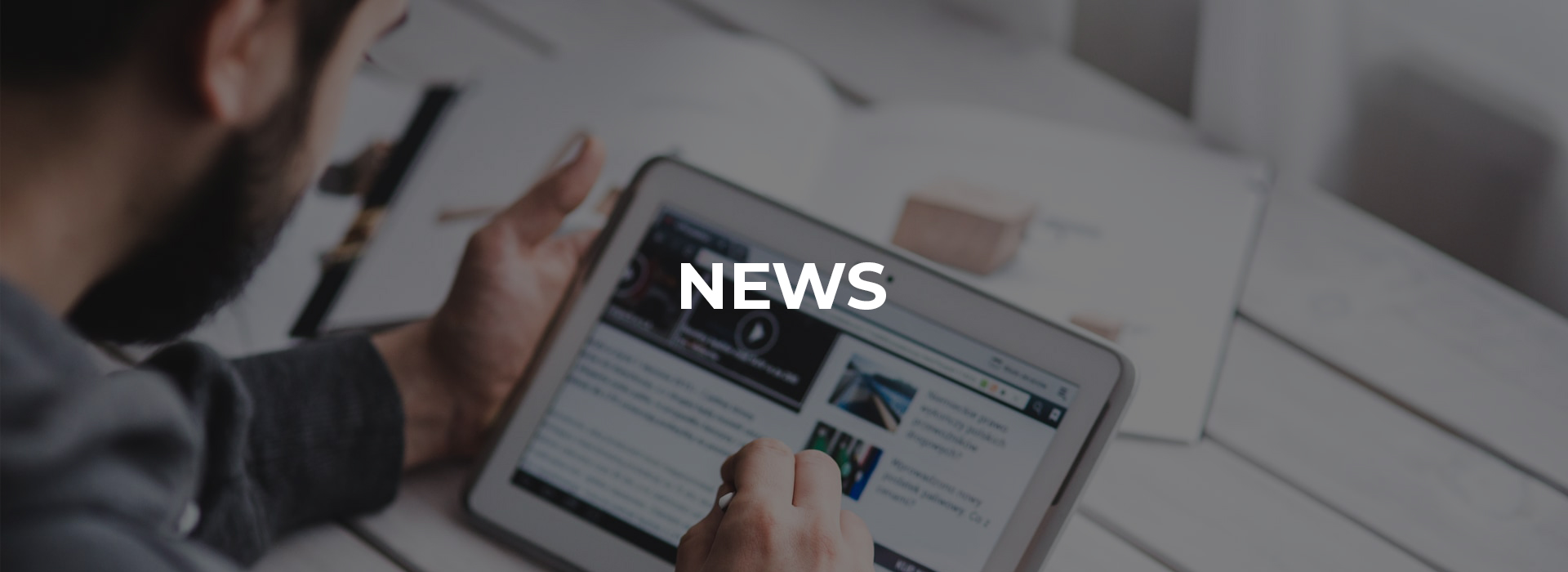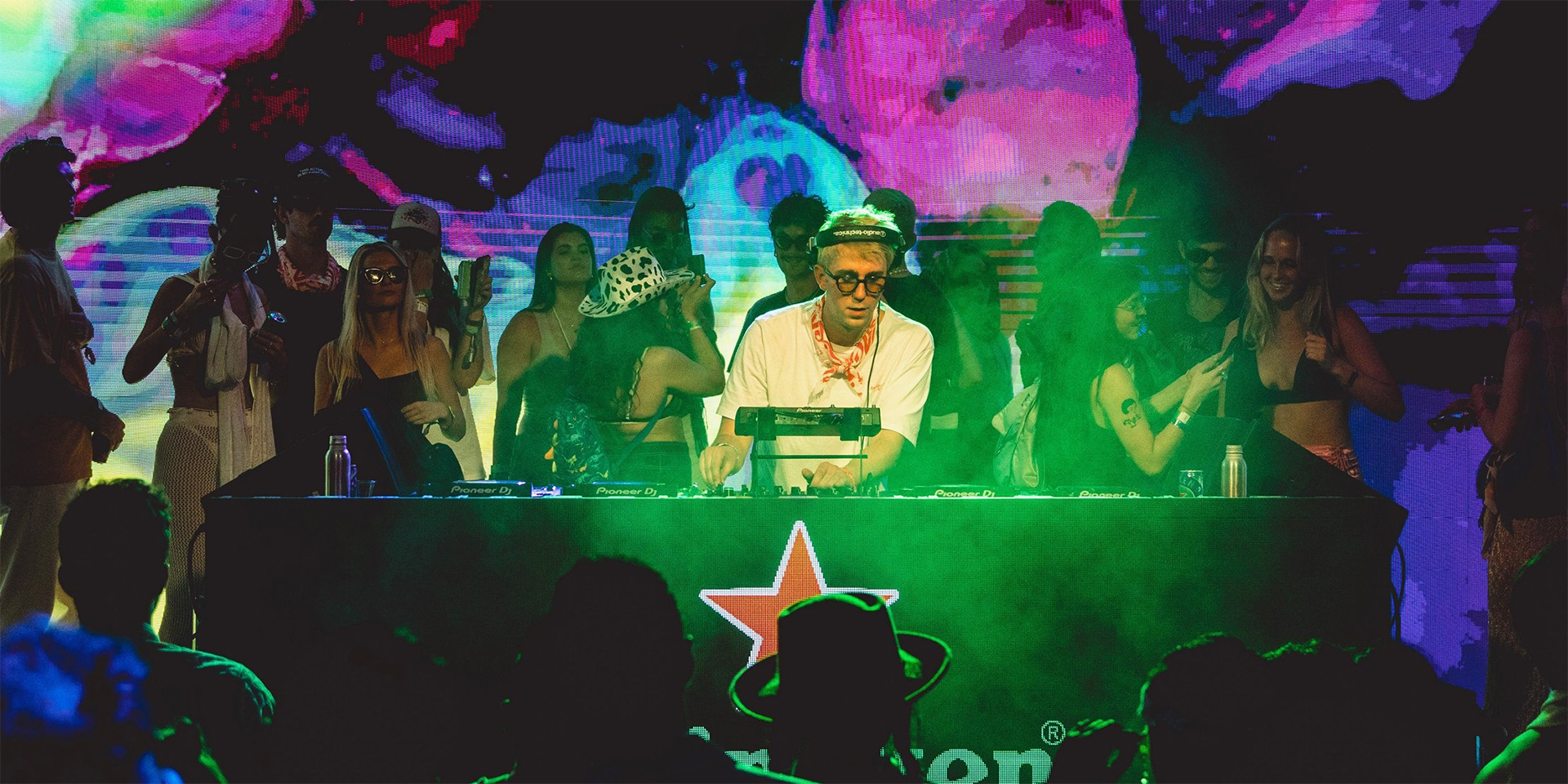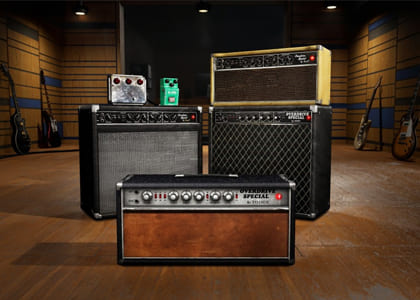Ableton
Artist
SG Lewis: Bridge to the Underground!
19 June, 2023
— Sam Lewis doesn’t usually enjoy making music on his own. “It’s like going to the pub by yourself,” he explains. “It can be fun, I guess. But I find working with other people so much more exciting.” —
It’s not a surprising thing to hear from someone whose long list of collaborators includes Elton John, Nile Rodgers, Jessie Ware, Robyn and Dua Lipa (whose standout track “Hallucinate” he co-wrote and co-produced). For Lewis, working with a new artist is like getting to know a new creative tool in the studio; each one brings a fresh perspective and a new set of musical ideas to explore.
“I feel like a kid in a candy store,” he laughs. “I get to dream up these collaborations and be like “what would it sound like if Robyn were on this chunky Eurodance beat?” So I just get to have fun with it. I get to work with some incredible artists, and I always feel like a fan first and foremost.”
It’s also a chance to shake off the usual anxieties and self-doubt that come with solo work. “Unlike with my own projects, where I’m thinking “how does this music represent me and my tastes and my art?” I get to let go of the responsibility and be like, “Ok, what does this person need, and what’s the end goal?” And that’s fun.”
Even Lewis’s solo albums are rooted in relentless collaboration. For AudioLust & HigherLove, his latest EP, he’d spend weeks at a time holed up in various studios across the UK with three musician friends. “We were basically living in those studios, and all we had to think about was making music. Food is taken care of, everything’s taken care of, and at the time the world was just on pause. There was nothing else going on. I'm quite glad that I had the opportunity to do that, and I learned a lot from it.”
Whether working alone or drawing on inspiration from others, Lewis favors speed over technical precision. It’s an approach that set him apart from his peers while studying music engineering at college, where obsession over the intricacies of hardware gear was valued above all else. “There were people there that knew how to rewire a compressor, or who could do any kind of engineering task,” Lewis says, “and all of the things I learned there were tools for making music rather than the thing itself. To me, it was never that interesting how a compressor worked. It was more interesting what it did to the music and how it helped me to achieve the sound or effect that I was after. So I’d just take the bare minimum, and then I'd be like “cool” and take it back to my room and start making music with it.”
That’s not to say Lewis finds producing easy – far from it. “I like that old sentiment, that rock and roll thing about great art being made out of pain and time. But sometimes for production that's not true at all. If I’ve had a heavy night or l haven’t been looking after myself then I find production and creativity definitely harder.”
Sometimes, a little extra help is called for. “One thing I've been doing recently is microdosing psilocybin in these tiny little gummies. Just tiny amounts. I'm not saying it's something that you need to do at all, but sometimes I found that it would switch off the voices in my head.”
“Usually I'd be working on something, and sometimes my brain would just be like, “this sucks, you should give up.” And I think all the psilocybin does is switches off that voice in my head, allowing me to go down the rabbit hole a bit further and be like, “okay, like, is there something in this?” And sometimes, there is something.”
But it’s the speed with which he works that seems to be the key. “My TikTok is full of people who are incredible at sound design, who can take Serum and create these absolutely insane sounds,” he tells me. “But I've just never ever spent more than, like, ten minutes making a sound. Because I'm trying to get the idea out of my head and not obsessing over, like, the LFO or something. I also like that commitment to audio. That’s something that’s really great about Ableton [Live], the ability to destroy audio. I would much rather commit to audio and then destroy it than try and perfect it from the beginning.”
If the methods are rough and ready, the results are anything but. From his debut album Times to his many collaborations and latest release, the production on all of Lewis’s tracks is razor sharp. Each release invariably finds a new way of fusing disco, funk or RnB with modern pop, and all in a seemingly effortless way.
“It's not something I'm conscious of at all. I’m often just trying to borrow from things that I liked from the past, and I'm definitely a student of older music. But it's the software and the processes that allow you to kind of make it feel futuristic. We just have tools available to us that they didn't have in the ‘80s, so even if you do like a typically ‘80s thing, it's going to sound different because of the processing and the mixing.”
Lewis’s familiarity with disco and the clubbier side of pop is part of what makes him so valuable to his many collaborators, and it’s something he’s keenly aware of. “I think I represent a bridge between pop and underground electronic music to a lot of artists. And I think that’s because I'm a fan of both of those things. I know where the gap is, and how to bridge it. So much of pop works well with underground dance music, and underground dance music works well in pop. They’re two worlds that collide very easily for me.”
“Last night in Panorama Bar,” he tells me, “this piano house track gets played. And all the hands go up, and all the shutters open, and – it's pop music! It’s the same chord sequences, the same cadence, the same melodies. It's just in a different context.”
But despite the ease with which Lewis gets into the creative flow with other artists, performing in front of a crowd has taken a little getting used to. “It’s definitely not a natural place for me to be. For a long time, my first instinct would be this feeling of fight or flight. This voice in my head would be like, “Get off the stage, there are so many people looking at you!””
So what’s the solution? “Over time you just kind of become more comfortable being in that position,” he explains. “In those initial stages you're really just throwing stuff at a wall and seeing what sticks. There were some initial shows, which were like, just objectively bad, because of the hurdle of playing electronic music live. And I always wanted it to be a live project, rather than a DJ-focused thing, but you know, electronic music is not intuitively created to be performed live. So the hurdle was creating a performance that’s engaging for the audience.”
Lewis is understandably reticent about his next solo projects. But where does he see frequent collaborators like Dua Lipa heading in the future? “I have an idea of where she’ll go next, but I'm interested just to see what the big pop stars are thinking. You’re starting to see little trickles of it, because it was disco for like the last five years or so and now you can see trance making a comeback. Like with Calvin [Harris] and Ellie [Goulding]. I've been saying in interviews that someone's going to nail a trance hit soon. It's funny because I was wanting to make that trance hit, but Calvin’s got there first” he laughs.
Later that day comes Lewis’s gig at Berlin’s Kesselhaus venue, and it’s a joyous, dazzling performance. The first time he played in Berlin a few years ago, he tells the audience, there were a few dozen people. This time it’s hundreds. Give him a few more years on this trajectory, and it’ll be thousands.
“I feel like a kid in a candy store,” he laughs. “I get to dream up these collaborations and be like “what would it sound like if Robyn were on this chunky Eurodance beat?” So I just get to have fun with it. I get to work with some incredible artists, and I always feel like a fan first and foremost.”
It’s also a chance to shake off the usual anxieties and self-doubt that come with solo work. “Unlike with my own projects, where I’m thinking “how does this music represent me and my tastes and my art?” I get to let go of the responsibility and be like, “Ok, what does this person need, and what’s the end goal?” And that’s fun.”
Even Lewis’s solo albums are rooted in relentless collaboration. For AudioLust & HigherLove, his latest EP, he’d spend weeks at a time holed up in various studios across the UK with three musician friends. “We were basically living in those studios, and all we had to think about was making music. Food is taken care of, everything’s taken care of, and at the time the world was just on pause. There was nothing else going on. I'm quite glad that I had the opportunity to do that, and I learned a lot from it.”
Whether working alone or drawing on inspiration from others, Lewis favors speed over technical precision. It’s an approach that set him apart from his peers while studying music engineering at college, where obsession over the intricacies of hardware gear was valued above all else. “There were people there that knew how to rewire a compressor, or who could do any kind of engineering task,” Lewis says, “and all of the things I learned there were tools for making music rather than the thing itself. To me, it was never that interesting how a compressor worked. It was more interesting what it did to the music and how it helped me to achieve the sound or effect that I was after. So I’d just take the bare minimum, and then I'd be like “cool” and take it back to my room and start making music with it.”
That’s not to say Lewis finds producing easy – far from it. “I like that old sentiment, that rock and roll thing about great art being made out of pain and time. But sometimes for production that's not true at all. If I’ve had a heavy night or l haven’t been looking after myself then I find production and creativity definitely harder.”
Sometimes, a little extra help is called for. “One thing I've been doing recently is microdosing psilocybin in these tiny little gummies. Just tiny amounts. I'm not saying it's something that you need to do at all, but sometimes I found that it would switch off the voices in my head.”
“Usually I'd be working on something, and sometimes my brain would just be like, “this sucks, you should give up.” And I think all the psilocybin does is switches off that voice in my head, allowing me to go down the rabbit hole a bit further and be like, “okay, like, is there something in this?” And sometimes, there is something.”
But it’s the speed with which he works that seems to be the key. “My TikTok is full of people who are incredible at sound design, who can take Serum and create these absolutely insane sounds,” he tells me. “But I've just never ever spent more than, like, ten minutes making a sound. Because I'm trying to get the idea out of my head and not obsessing over, like, the LFO or something. I also like that commitment to audio. That’s something that’s really great about Ableton [Live], the ability to destroy audio. I would much rather commit to audio and then destroy it than try and perfect it from the beginning.”
If the methods are rough and ready, the results are anything but. From his debut album Times to his many collaborations and latest release, the production on all of Lewis’s tracks is razor sharp. Each release invariably finds a new way of fusing disco, funk or RnB with modern pop, and all in a seemingly effortless way.
“It's not something I'm conscious of at all. I’m often just trying to borrow from things that I liked from the past, and I'm definitely a student of older music. But it's the software and the processes that allow you to kind of make it feel futuristic. We just have tools available to us that they didn't have in the ‘80s, so even if you do like a typically ‘80s thing, it's going to sound different because of the processing and the mixing.”
Lewis’s familiarity with disco and the clubbier side of pop is part of what makes him so valuable to his many collaborators, and it’s something he’s keenly aware of. “I think I represent a bridge between pop and underground electronic music to a lot of artists. And I think that’s because I'm a fan of both of those things. I know where the gap is, and how to bridge it. So much of pop works well with underground dance music, and underground dance music works well in pop. They’re two worlds that collide very easily for me.”
“Last night in Panorama Bar,” he tells me, “this piano house track gets played. And all the hands go up, and all the shutters open, and – it's pop music! It’s the same chord sequences, the same cadence, the same melodies. It's just in a different context.”
But despite the ease with which Lewis gets into the creative flow with other artists, performing in front of a crowd has taken a little getting used to. “It’s definitely not a natural place for me to be. For a long time, my first instinct would be this feeling of fight or flight. This voice in my head would be like, “Get off the stage, there are so many people looking at you!””
So what’s the solution? “Over time you just kind of become more comfortable being in that position,” he explains. “In those initial stages you're really just throwing stuff at a wall and seeing what sticks. There were some initial shows, which were like, just objectively bad, because of the hurdle of playing electronic music live. And I always wanted it to be a live project, rather than a DJ-focused thing, but you know, electronic music is not intuitively created to be performed live. So the hurdle was creating a performance that’s engaging for the audience.”
Lewis is understandably reticent about his next solo projects. But where does he see frequent collaborators like Dua Lipa heading in the future? “I have an idea of where she’ll go next, but I'm interested just to see what the big pop stars are thinking. You’re starting to see little trickles of it, because it was disco for like the last five years or so and now you can see trance making a comeback. Like with Calvin [Harris] and Ellie [Goulding]. I've been saying in interviews that someone's going to nail a trance hit soon. It's funny because I was wanting to make that trance hit, but Calvin’s got there first” he laughs.
Later that day comes Lewis’s gig at Berlin’s Kesselhaus venue, and it’s a joyous, dazzling performance. The first time he played in Berlin a few years ago, he tells the audience, there were a few dozen people. This time it’s hundreds. Give him a few more years on this trajectory, and it’ll be thousands.
Top News
November 17, 2023





